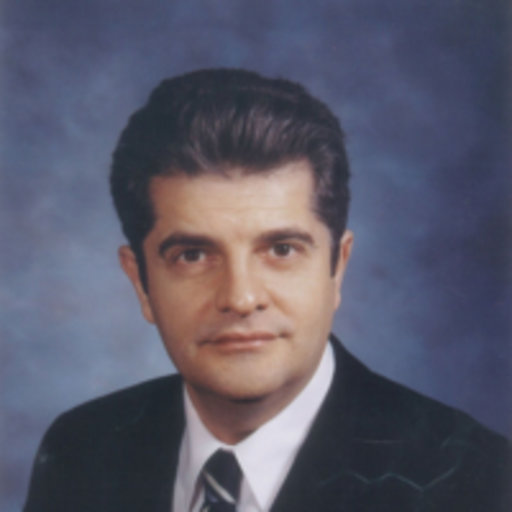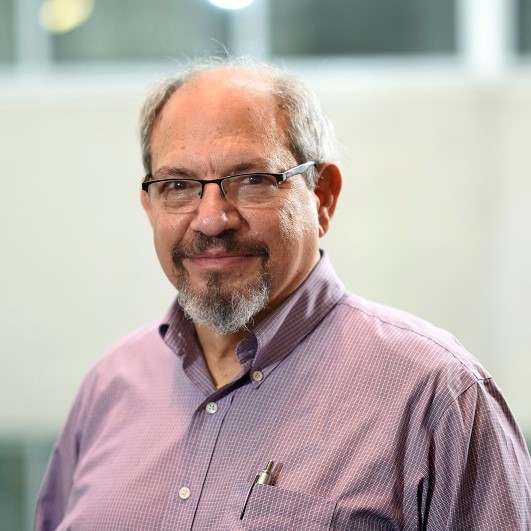Roundtable Discussion and Workshop: Tuesday, June 1st, 2021, 0930-1130h EST
As the SARS-CoV-2 crisis has shown, prevailing approaches to crisis management have largely failed, as much at the policy level as the local level. The obvious question would be – if our approaches have failed, what are some of the underlying reasons, and how could it be done more effectively? This roundtable discussion/workshop will focus on looking at crises with a different mindset – one that seeks out to understand the interconnections and interdependencies behind a systemic problem and that a-priori explores how potential interventions may – positively and negatively – affect the system’s behaviour as a whole. This session brings together academic researchers who will lay the scholarly foundations and health system leaders who will share a series of case studies from the practitioner’s perspective. A lively exchange with cumulate in real-time application of complexity thinking principles.
Register for this joint virtual conference session through the NHLC conference website or by emailing Natalija Svo or Shawn Drake.
Chair:

Peter Tsasis, PhD
Dr. Peter Tsasis is an Associate Professor of Management at York University and a health systems researcher with expertise in intersectoral collaboration, learning health systems and systems transformation. He has published in many peer-reviewed publications in a broad spectrum of interdisciplinary scholarly journals. His active research output has been disseminated in a multitude of international peer-reviewed conference presentations and invited symposia to showcase new paradigms in shifting attention to critical new areas of research.
Moderator:

Shawn Drake, MSc, PhD(c)
Shawn is Managing Partner of Workforce Edge Consulting and Training, a strategic advisory organization dedicated exclusively to health workforce planning, scheduling and deployment. The scheduling environment deploys upwards of 70% of the budget, delivers care and skill to the bedside, absorbs significant effort, and is extremely emotive for staff. Shawn is dedicated to the assessment and diagnosis of utilization problems, process design and cultural transformation related to establishing and/or improving workforce optimization portfolios and practices. These contributions have provided significant strategic and predictive advantages for complex health systems in a pandemic world. He holds a MSc from The Management Centre at King’s College London and is currently writing up his doctoral dissertation at the School of Public Policy and Administration, Carleton University in Ottawa. He is a board member of the CDN Chapter of ACHE and has founded a Practitioner’s Panel on health workforce mobilization with the Society for Comparative Policy Analysis (ICPA-Forum: SPPA Carleton; Wagner, NYU).
Panelists:

David Aron, MD, MS
David Aron is Director of Clinical Programs Research and Education at the Cleveland VA Medical Center. He is a clinical endocrinologist, health services researcher, and leader of the VA Quality Scholars Fellowship Program, a training program in quality improvement.
He is a Professor of Medicine and Epidemiology, and Biostatistics at the School of Medicine, Case Western Reserve University. He is also an Adjunct Professor of Organizational Behavior at the Weatherhead School of Management, where he teaches a class on Managing Complex Systems. A former laboratory bench researcher, his current research interests are eclectic and have included health services and implementation research related to quality measurement and improvement, especially diabetes-related, and most recently, applications of principles of complex systems. He recently authored a book: “Complex Systems in Medicine: A Hedgehog’s Tale of Complexity in Clinical Practice, Research, Education, and Management.” However, as has often been the case in the past, exactly what he will be working on, even in the not-too-distant future, cannot be predicted with any certainty.

Jennie Deneka, BSN,MA,CEC
Jennie has had a long and distinguished career in seniors housing management and healthcare and is CEO of the Trinity Place Foundation of Alberta. Professionally trained as a nurse, with her Masters in Leadership and Training and Graduate Certificate in Project Management, Ms. Deneka has more than 20 years of leadership in the sector. She has worked at an executive level with a wide variety of service providers, including CareWest, Revera, and Pacific Reach Seniors Housing Management. Ms. Deneka also spent time with Alberta Health Services in leadership and organizational development positions.

Alicia Duval
Alicia is an experienced, accomplished and certified association executive with a passion for advancing organizational goals and talent necessary to be successful. Alicia is Senior Vice President of Industry Relations (healthcare and pharmacy) and Public Relations at GS1 Canada. She is responsible for the development and implementation of strategies to increase stakeholder engagement, as well as government relations strategies. Alicia spearheads activities to introduce global standards and supply chain best practices to the Canadian healthcare and pharmacy sectors, a global effort to lead the healthcare industry to the effective utilization and development of global standards with the primary focus on improving patient safety and health system quality. With over 24 years of association management experience, Alicia has held executive positions at some of Canada’s leading associations, including the Canadian PGA, the Canadian Association of Chain Drug Stores (CACDS) and the Retail Council of Canada (RCC).

Paige McDonald, EdD
Paige McDonald is an Assistant Professor of Clinical Research and Leadership at the George Washington University School of Medicine and Health Sciences and Vice-Chair for the Department of Clinical Research and Leadership. She is an educational researcher who has focused on how to integrate technology into health professions education to achieve pedagogical goals. At GW, Paige teaches courses on complexity science, knowledge translation, and implementation science and innovation leadership in a PhD program on Translational Health Sciences. She remains curious about how introducing Ph.D. students to the complexity sciences influences perspective transformation and approaches to problem exploration and resolution.

Bertine McKenna, BHS, MHA, PhD, FACHE
Bertine is a C-Suite executive with 30 years of experience in all aspects of healthcare across seven Academic Organizations and four states. Depth of expertise includes day-to-day operations to strategy, network building, creation and integration, and knowledge of population health approaches. She is an expert in Quality and Safety, compliance issues, finance, marketing, strategy development, and leadership development. Experience is built from Director level to President through full engagement in front-line operations to Board engagement. Bertine is a speaker and published author with multiple articles appearing in Fast Company, Healthcare Network and others; and is currently seeking assignments in both Healthcare and Organizational Assessment. Her work in consulting spans the various areas of expertise, including Cybersecurity, Executive and leadership coaching and operational assessment.

Carmel Martin, MD, PhD
Carmel is a Consultant in Community Health, Monash Health, Victoria Australia and an Adjunct Associate Professor Department of Medicine, Monash University. Carmel is active in clinical general practice in Holland Park, Brisbane, with a particular interest in chronic disease and illness and patient-centered care and complex systems. Carmel is an Australian medical graduate from the University of Queensland. Carmel completed her Masters in Community Medicine at the London School of Hygiene, University of London and my Ph.D. at the Australian National University. Carmel’s research in Australia, Canada and Ireland has focused on reforms related to primary health care and chronic care, the nature of health in body, mind, society and the environment and meaning and sense-making about personal health. Carmel is co-editor, with Joachim Sturmberg, of the Forum on Systems and Complexity in Medicine and Healthcare in the Journal of Evaluation in Clinical Practice. Carmel has achieved > $15,000,000 in research funding as PI, Co-PI and Co-I. Carmel has over 100 peer-reviewed journal article publications and many other publications.

Susan OWEN, BSc, MSHc, CHE
Sue Owen holds a Bachelor’s Degree in Kinesiology from the University of Waterloo, a Master of Health Science from the University of Toronto and a diploma in facilitation skills from the Ontario Institute for Studies in Education. She currently leads Impreza Consulting, a boutique consultancy located in Ontario. Before that, she led Phillips Canada’s National Consulting practice. Her other roles include Senior Manager at KPMG and Director, Strategy at Mount Sinai Hospital. Sue served on the CCHL National Board of Directors from 2012-2018 and was Board Chair from 2016-2018. Sue was on the CPSI Board of Directors from 2018-2020 and is currently on the National Board of Directors for Healthcare Excellence Canada where she is also the Chair of the Governance & Human Resources Committee.

Joachim Sturmberg, MBBS, DORACOG, MFM, PhD, FRACGP
Joachim is a Conjoint Associate Professor of General Practice in the School of Medicine and Public Health, Faculty of Health and Medicine, at The University of Newcastle, Australia. He is a graduate of Lübeck Medical School in Germany, where he also completed his Ph.D. Since 1989, Joachim has worked in an urban group practice on the Central Coast of New South Wales. His research focuses on understanding the complex interconnected features of health and person-centred healthcare. Together with his collaborators, Joachim proposes that a truly functional health system ought to always focus on the needs of the person/patient across all domains affecting health – local health delivery services, local and regional social and economic infrastructure and services, as well as in all portfolios at the national policy levels. These complex interdependent features of a person-centered healthcare system are described by the health vortex model. Joachim’s current research focuses on operationalizing the health vortex model, integrating the physiology of health with health care delivery, the socioeconomic domains affecting health, and the impact of policy decisions on health and the healthcare system. Joachim is the Foundation President of the International Society for System and Complexity Sciences for Healthcare. Joachim and Carmel Martin are joint co-editors in chief of the Forum on Systems and Complexity in Medicine and Healthcare as part of the Journal of Evaluation in Clinical Practice.

John Van Aerde, MD, MA, PhD, FRCPC
John(y) is the Executive Medical Director of the Canadian Society of Physician Leaders and the Founding Editor of the Canadian Journal of Physician Leadership. He has 25 years of experience as a neonatologist in the Canadian health system, the first ten as a clinician-researcher, the next 15 in different leadership roles. After leaving the world of newborn medicine, he has been learning, teaching and researching leadership development for physicians across Canada. He holds a Ph.D. in Medical Sciences and a Master’s degree in Health Leadership Studies and has published extensively in neonatal nutrition & metabolism and leadership in health systems. Recently, he became an Emeritus Clinical Professor of Pediatrics – Univ of Alberta. He practices systems theory by living in a self-sustainable house and by exploring forest regeneration while his wife grows year-round organic food.

Mary Zelinski, MHA, FACHE
Mary is the Vice President of Medical Group Operations at the Mohawk Valley Health System in Utica, NY. Mary is currently pursuing her Doctorate of Health Administration from the Medical University of South Carolina. She earned a Master of Science in Healthcare Administration from Utica College in Utica, New York, and a Bachelor of Arts in Human Development from SUNY Oswego in Oswego, New York. Mary volunteers for the American Health Care Association and Communities of Excellence 2026 – Baldrige-based programs as an Examiner. She lives in Herkimer, NY, with her husband and twin daughters.
* ACHE Qualified Education credit: As an independent chartered chapter of the American College of Healthcare Executives, the Canadian Chapter of ACHE is authorized to award 2.0 hours of ACHE Qualified Education credit toward advancement or recertification in the American College of Healthcare Executives. Participants in this program who wish to have it considered for ACHE Qualified Education credit should list their attendance when they apply to the American College of Healthcare Executives for advancement or recertification.
**CCHL Maintenance of certification (MOC): Attendance at this program entitles certified Canadian College of Health Leaders members (CHE / Fellow) to 2 Category I credits towards maintaining certification requirements for attending the ACHE workshop.